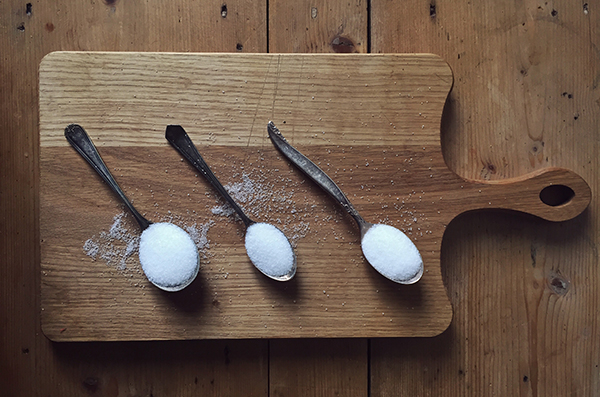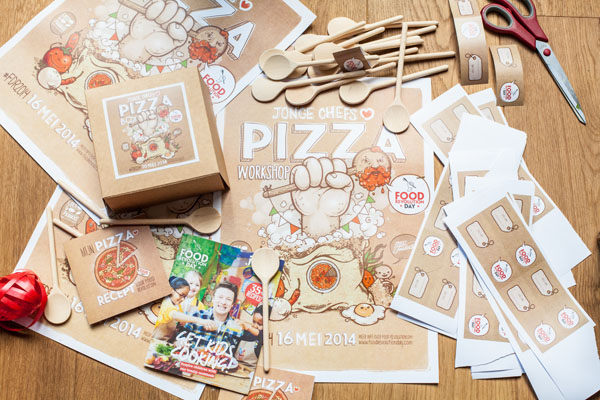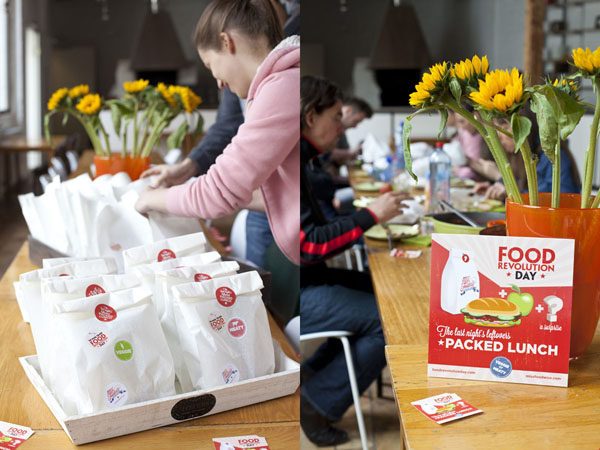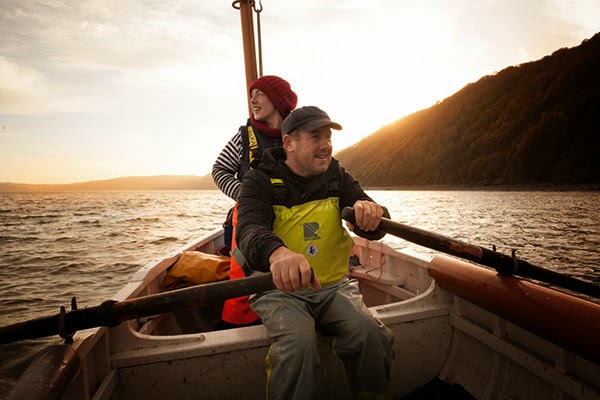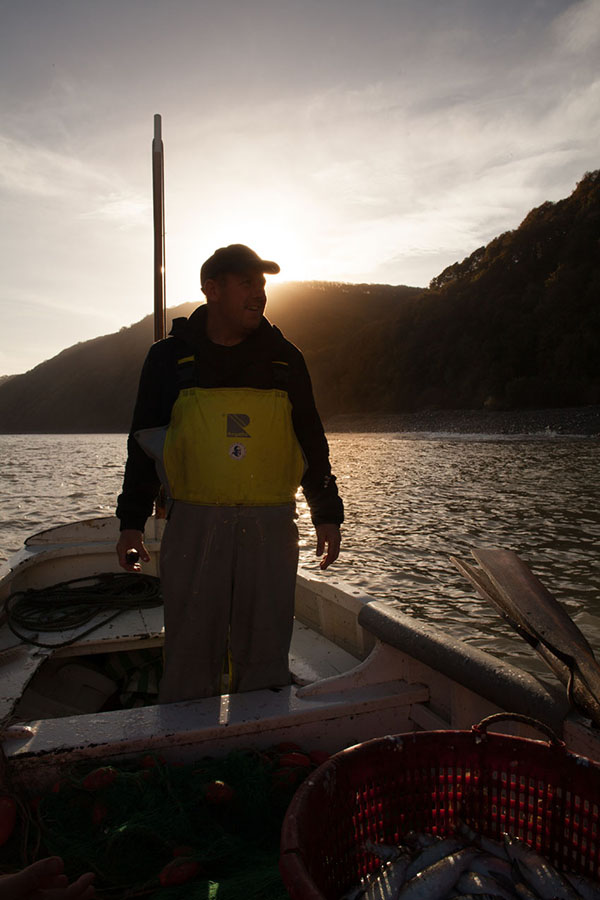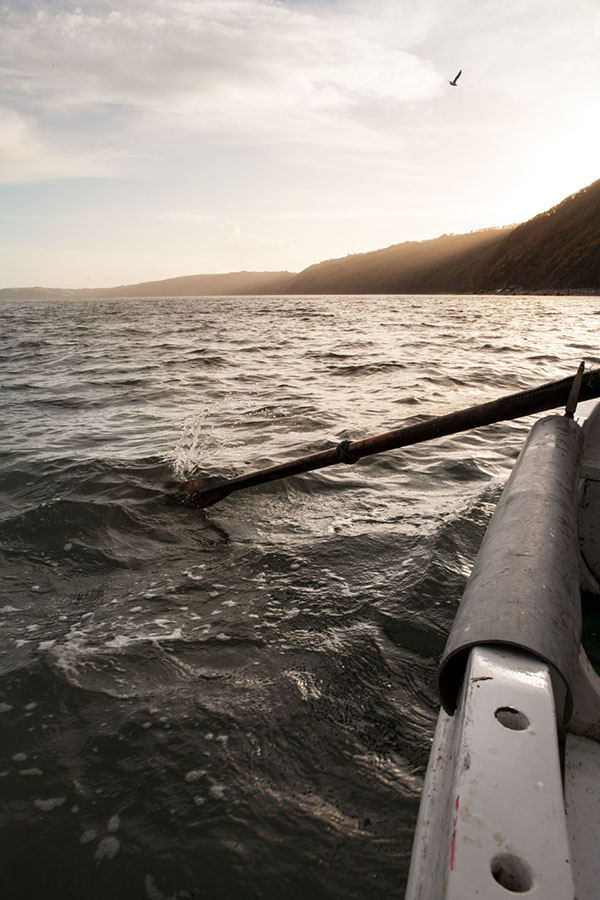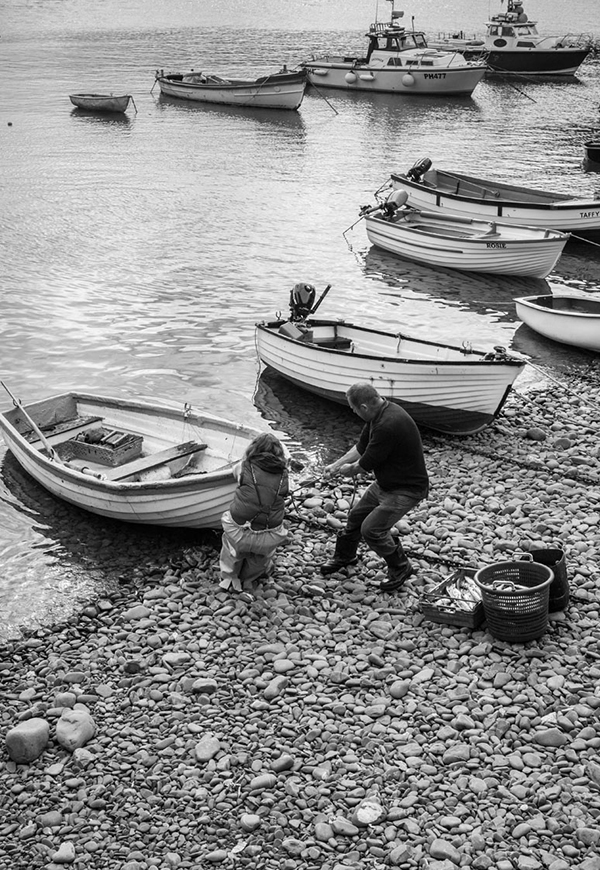The post A surcharge on sugary drinks versus IKEA fruit water appeared first on Miss Foodwise.
]]>Meanwhile across the channel, a chef has had enough and is campaigning for a tax on sugary drinks – all sugary drinks, even the ones with 50% less sugar.
I thought the press might be all over this, I thought it would explode on health blogs and yet… all remained quiet. As I am getting ready to attend a food symposium in the UK with the theme ‘Food and Communication‘ I found it fitting to have a rant about how this communication by IKEA* is misleading us all.
From september 2015 they will ban all sugary fizzy drinks from their restaurants. That’s the headline and that’s the lie. Proudly they are replacing their imitation Pepsi and 7up with more healthy fruit waters which contain only half the sugar. Half the sugar. That’s still too much sugar.
The World health organisation (WHO) say that we ideally should be consuming no more than 6 teaspoons of sugar a day. **Regular fizzy drinks contain up to 6 teaspoons per 330ml serving. That’s your daily sugar intake in one glass of sweet drink. That is bad.
So if IKEA’s fruit water contains ‘only’ half the amount of sugar of your average fizzy drink – it still contains about a whopping **3 teaspoons of sugar.
When having one glass of IKEA fruit water means you have consumed half the daily recommended amount of sugar. And you know what? They offer FREE REFILLS! So you can have more!
“Ikea schrapt frisdrank van het menu”
(Ikea bans sugary fizzy drinks from menu)
The communication to the world is that IKEA is trying to get a more healthy reputation… I think they are misleading the consumer with it.
Firstly their fruit waters aren’t healthy, nor are they more healthy because they contain ‘only’ 50% the amount of a regular pop per serving. Secondly they are motivating people to refill their cup at self service machines, so people can have another 3 teaspoons of sugar diluted in water with natural flavourings.
My advise to IKEA.
Serve water with real fruit, just fruit – no added sugar, no added colourings.
How do you do this?
Fill a jug or a barrel with water, just water, and just toss in sliced cucumbers, apples, strawberries or whatever fruit. Then and only then you have FRUIT WATER, and not fizzy drink with natural fruit flavours and only half the sugar.
I understand that this would make your system of free refills at a machine impossible, but I think we are outgrowing the machines and are yearning for human contact again. Then and only then will you be making the change you are shouting about right now. Then and only then will you be truthful with your customers. Right now, you are contributing to a world-wide problem of children and adults being overweight due to an extreme sugar intake. All because people buy foods and drinks which are low in sugar, to then consume double.
A surcharge or tax on sugary drinks
The contrast with another news item this month is stark.
Jamie Oliver is making good of his crusade to tax sugary drinks and is putting a surcharge on sugary drinks in his restaurants. The money from the surcharge will go to a charity that supports children’s health across Britain.
Jamie Oliver says that he expects the surcharge to raise £80,000 over the next year. He will donate the money to Sustain, a charity that “support’s children’s health food initiatives across Britain.
He told the Sunday Times: ‘I was born into the restaurant industry and I truly believe that by joining together on this issue we not only send a powerful and strong message to government but we also have the potential to make a longlasting legacy that could ripple across the world.
‘I’ve seen first-hand the heartbreaking effects that poor diet and too much sugar is having on our children’s health and futures. Young children are needing multiple teeth pulled out under general anaesthetic and one in three kids [is] now leaving primary school overweight or obese.
‘Soft drinks are the biggest single source of sugar among school-age kids and teenagers and so we have to start here.’ The chef said an explanation of the sugary drink levy will be printed on all his menus and waiting staff will be able to offer alternative healthy drinks for children.’
Quite a different story from, we’re cutting down on sugar but you can still go for a refill so you can have all the sugar you want.
What Jamie Oliver is doing is being honest about the fact that the sugary drinks on his menu aren’t healthy. And by adding an explanation to why he is adding the surcharge he is educating people rather than trying to ban the sugary drinks all at once. Banning something will only make people want it more, but telling them about the dangers of excess sugar intake will maybe make people want to give up, or reduce their consumption of sugary drinks. What Ikea does is claiming their sugary drinks are healthy, and that is where they go wrong.
Further reading/watching
The Truth about Sugar BBC 2015 >
How much sugar is in your fizzy drink >
World Health Organisation recommends adults should have no more than 6 tsp of sugar a day >
Tax on sugary drinks to reduce obesity a study says – The Independent >
In Flemish
Ikea schrapt fristdrank van het menu (en vervangt het met fruitwater met 50% minder suiker) De Standaard >
Jamie Oliver heft belastingen op frisdrank – De Standaard >
Sources: Sunday Times, The Independent, Eater, De Standaard, BBC, WHO, press release IKEA
*This post is about IKEA BELGIUM, I have no idea what the situation is in other countries.
** I do not know how many teaspoons of sugar their fizzy drinks contained so used an average quantity. I will of course alter the numbers if they become known to me.
Apologies to my readers for going off-topic on this blog, but I truly believe you can’t be a foodie without being a food activist.
The post A surcharge on sugary drinks versus IKEA fruit water appeared first on Miss Foodwise.
]]>The post Food Revolution Day – Food education back on the menu appeared first on Miss Foodwise.
]]>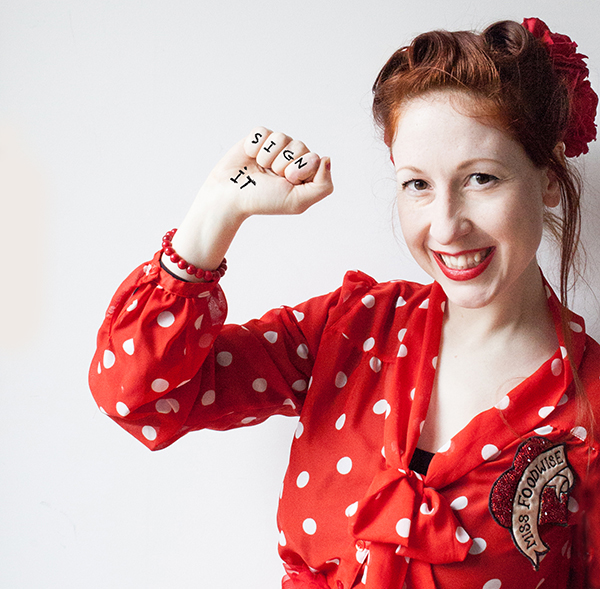 |
| Sign the petition www.change.org/jamieoliver |
Today is Food Revolution Day, the day on which we come together from all over the world to pull on the same end of the rope. A better future for our children is what is aimed at here, and better food education will bring that.
At a time when 42 million children under the age of five alone are overweight, we need to take action against this enormous epidemic.
In the olden days when the girls were supposed to marry to spend their lives cooking and cleaning for their husbands, girls were taught their skills in school and from their mothers. Today luckily us ladies aren’t chained to the stove and washing basket anymore, but with our emancipation, slowly domestic housekeeping lessons disappeared from the schools.
So many people don’t know how to cook from scratch because they weren’t taught the basic skills to make a meal. It is of vital importance that cooking skills, and even growing food is put back on the schools learning plans. With a growing world population, we need to reduce food waste, and to do this, we need to cook more and learn how to deal with leftovers. It might seem so straight forward to you, whipping up an easy dinner after work, but for so many people out there it is a daily struggle. Those trying to survive on a tight budget have it even worse when they don’t know how to cook.
I can always make a meal, it might be a strange dish sometimes, but it is always tasty. You tend to take that skill for granted. I know I did, it is only when you talk to someone who really can’t cook that you understand that cooking is often a talent you’re born with but others need to learn it. I learned from Jamie’s Naked Chef Series because my mum wasn’t really the type to teach you how to cook, she had a tendency to overcook things, or downright burn them to their second death.
My husband can’t cook either. When we were ‘courting’ he made me a pasta dish with grated carrots which he had heated up in yoghurt. Not the luscious thick strained Greek style yoghurt, natural sour pungent yoghurt. It was one of the most vile things I’ve ever had to swallow. He thought so too and luckily I didn’t have to finish the plate to be polite but how the hell could he have cooked that? Well, he followed a recipe. He doesn’t use it intuitive nature because he doesn’t know what he is doing. If he would have cooked from his heart, he would have made an entirely different dish. Like his eggs, he can cook a mean egg.
But it isn’t simple, not for everyone.
So teaching children to cook, teaching them about how food production – farming – works and maybe even re-introducing school gardens, might just save out future generations.
The fact that so many children don’t know their onions from their tomatoes is downright shameful and unnatural. We are not surprised that children don’t want to eat the pink slime they call meat in processed food when they see it in their raw state, but as soon as it is turned into chicken dips by Jamie in his School dinners show, the kids all go crazy for it, even knowing that minutes before it was just pink slime…
Education, education, education. It is the answer to everything.
So if you have a minute sign the petition to put food education back ‘on the menu’ in schools, and do it here www.change.org/jamieoliver
“By educating children about food in a practical, fun and engaging way, we can provide them with the knowledge and skills they so urgently need to lead healthier, happier lives. We need to make practical food education a compulsory part of every school curriculum across the world, and that’s why I’ve launched a petition calling on all G20 countries to action this. With enough support from millions of people around the world, I truly believe that we can create a movement that’s powerful enough to make governments take action.” Jamie Oliver
Sadly I didn’t host my Food Revolution Event this year, life just was a little too hectic at the moment and I am seriously gutted about it but I can’t make myself ill while trying. I’m in the final stages of photographing my book and testing recipes again, and I’m a one lady team here so I’m up to my ears in work. It’s great, I’m super happy, but to organise an event this year, I couldn’t do it alone, I would have needed a couple of people to help while I remain indoors like a hermit only going out when I need eggs and cream. 
Next year will be double cool I promise, and if you like to volunteer to give a hand, always welcome, just drop me a line or a tweet or shout at me in the street! 
Take care for now, and think about your food consumption today, learn someone something about food, think of where your meat comes from, your fish, your poultry, your eggs, … Think about it, share your thoughts, get conversations going.
x
Regula
Enjoy some pictures of my past Food Revolution Events!
“The future for me starts with food education”
Jamie Oliver
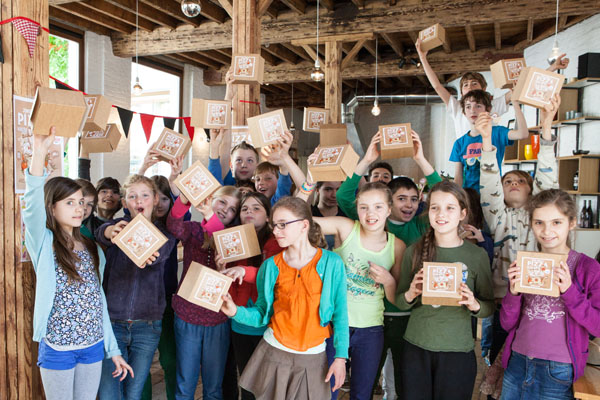 |
| Making pizza in a woodfired oven |
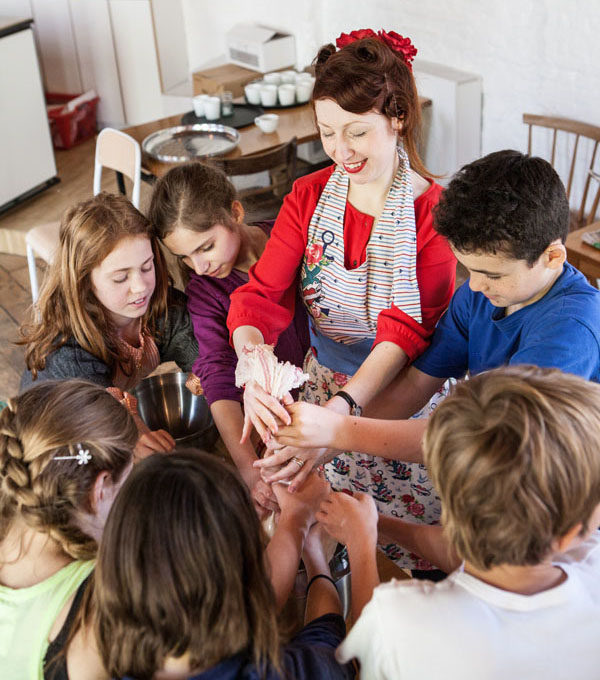 |
| Squeezing the whey out of the cheese |
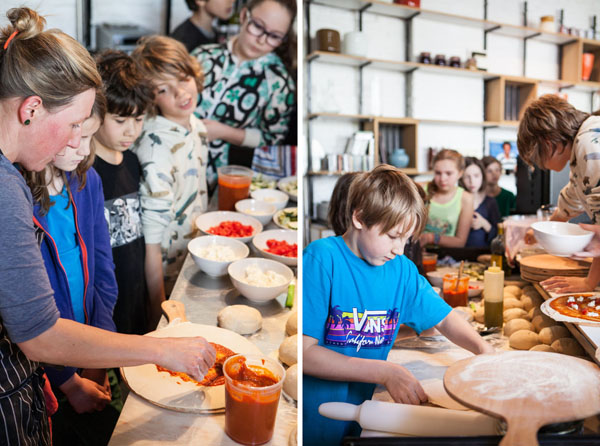 |
| creative with toppings |
You might also enjoy:
Mussels and fries for Food Revolution Day >
The post Food Revolution Day – Food education back on the menu appeared first on Miss Foodwise.
]]>The post The last of the herring men appeared first on Miss Foodwise.
]]>
In November I visited my friend Stephen Perham, the last of the Clovelly Herring men.
Also the Clovelly Harbourmaster, he is the only fisherman still living in the village and the only one who sells his catch. One of the very few others is Tommy who is Stephen’s brother, but he doesn’t live in the village anymore.
He is the last of the herring men of Clovelly, the last link between the old and the new; he is the one who keeps all those long lost souls alive, the keeper of hundreds of years of memories.Even when visiting the local pub in Clovelly, we find a lingering echo of Stephen and Tommy’s ancestors. The pictures on the wall of the snug bar tell the story of a Clovelly long gone, of fishermen gathering around the table smoking pipes and pictures of the most beloved wooden boats, of which only a few still remain in the harbour. These boats are unique to Clovelly and built to get out to sea faster than the larger boats when the herring arrives.
| Stephen in his Picarooner, a wooden boat unique to Clovelly |
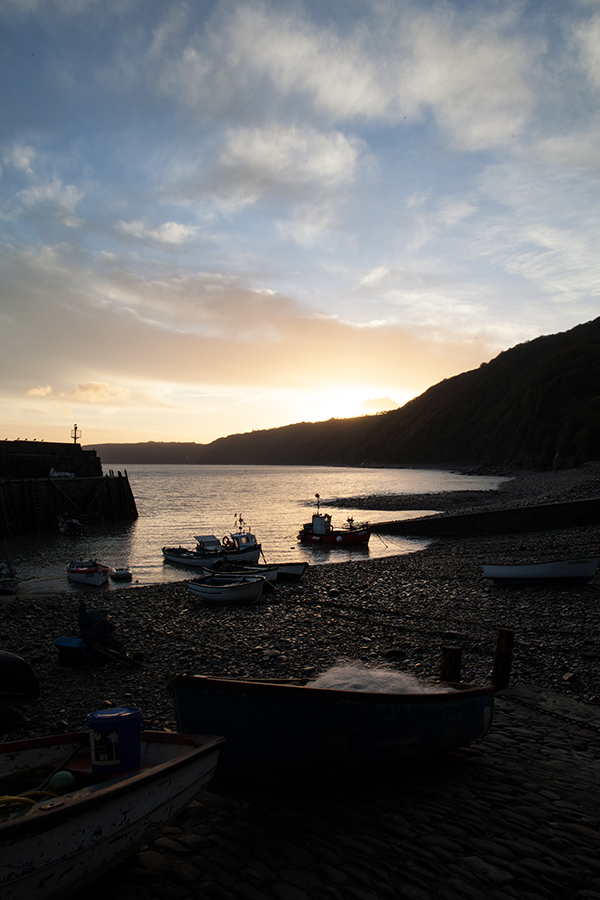 |
| The harbour at dawn |
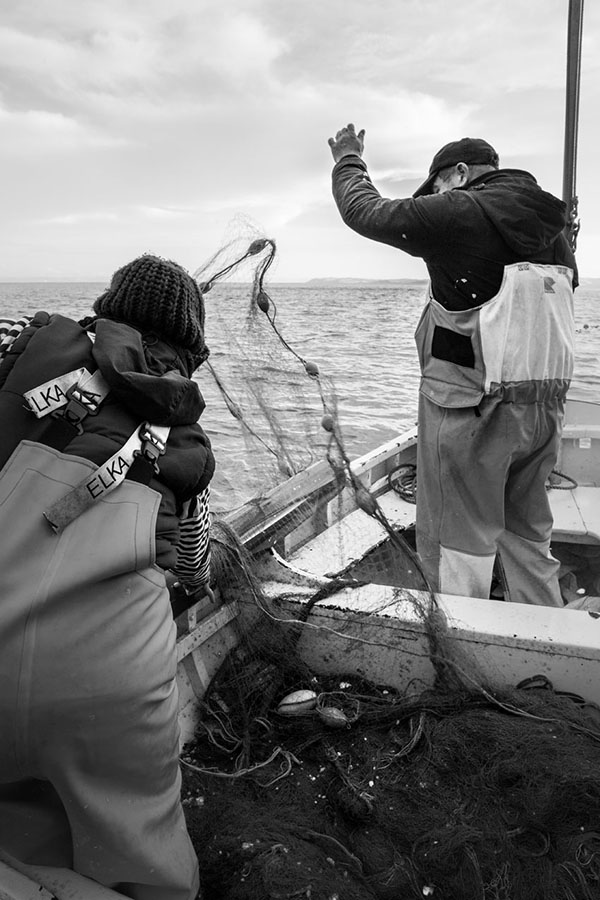 |
| Traditional sustainable fishing methods that haven’t changed for centuries |
Clovelly as a community, like many other similar coastal villages, once depended on the herring trade. Records show that two hundred years ago there were a hundred herring boats in the harbour with amounts around nine thousand herrings or ‘Silver Darlings’ brought in from sea. The days of the large herring fleet are long gone and today there are just a few fishermen who still go out for the herring, using sustainable fishing methods with drift nets.
Meeting Stephen, you immediately understand why the town’s herring festival each november isn’t just another food festival – it is a celebration of tradition and heritage, his heritage. Stephen is a 6th generation Clovelly herring fisherman, and with him and his brother, sadly, the line is very likely to end.
This proud and gentle-natured fisherman is the essence of this little village; he and his family represent the past and the future. He knows all the stories – where which boat got shipwrecked and who survived or was lost to the sea. He can read the waves, the sky and the sound that the rain makes when it hits the water. Fishing is in his blood, and fishing for herring is his passion as it has been associated with his family and this little village for centuries. As harbourmaster and the last full-time fisherman in the village, he knows where every boat is at any given moment and, although it is hard to sell herring these days -it is now a fish which is unjustifiably out of fashion- he continues to go out for herring because it is what he genuinely loves to do.
Life by the sea was so different in the old days; nearly all the men in the village were employed in herring fishing up until the 20th century. In the past, fishermen had to move away from their beloved little coastal town with its steep hills and cobbled lanes during the summer when there was no herring to be caught. They would work on the Royal Yachts further away but by the time the herring returned to these pebbled shores they would be home. The season of the Silver Darling runs from Michaelmas to Christmas and that’s why for Stephen “herring means Christmas”. It’s the build-up to Christmas, his favourite time of the year. He says once you get to Christmas it is all about the food, the puddings and the cakes. This fisherman loves to cook.
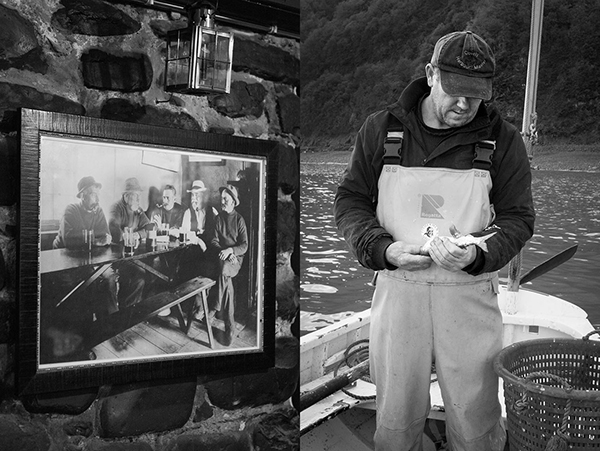 |
| Right: Stephen and Tommy’s ancestors on the wall of the village pub |
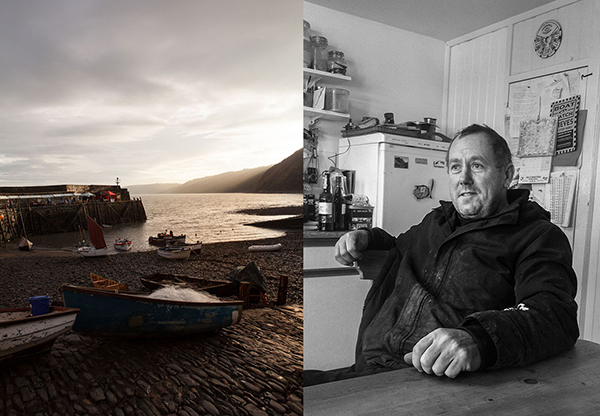 |
| Stephen looking out over the harbour from his kitchen, nothing happens without him knowing about it |
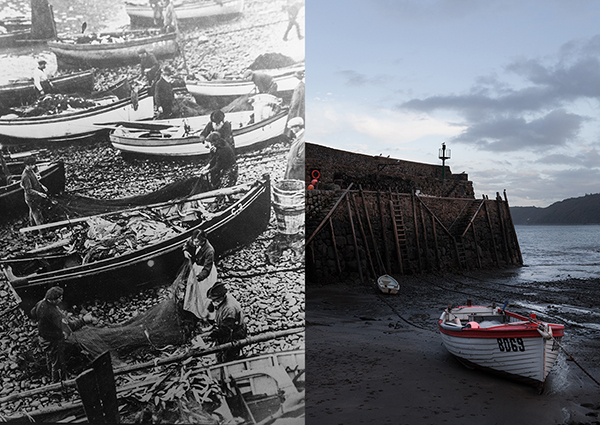 |
| Left: The large herring fleet of the past. Right: One of the last of the fleet today. |
His passion for herring and the traditional methods of catching them made him think about how he could try and put herring back on the map. The Clovelly Herring Festival was originally the brainchild of Stephen, Bob Rouse and Sue Haworth, who both work for Clovelly Estate, and the author of the well acclaimed book about the history of herring fishing, Mike Smylie. Smylie, as a maritime historian, has done a great deal for the fishing industry, and the herring industry in particular, trying to record the traditions of a dying industry that for years had fed the nation. He and Stephen met when BBC Radio 4 introduced the two in a program about Smylie’s herring book and they have been friends ever since.
Mike Smylie comes down to the Herring Festival each year with his self-made herring smoker, which looks like an old outdoor loo. He believes that people went off smoked herring due to the usage of artificial dyes to speed up the smoking process of kippers during WW2. It is also a rather sad fact that people have become so used to buying ready filleted fish that they have lost the knowledge of either boning a fish or even just eating it straight from a hot pan from the bone. Herring contains a larger bone and tiny little long bones which you can actually just eat. These little harmless bones had provided the people with much needed extra calcium in the past.
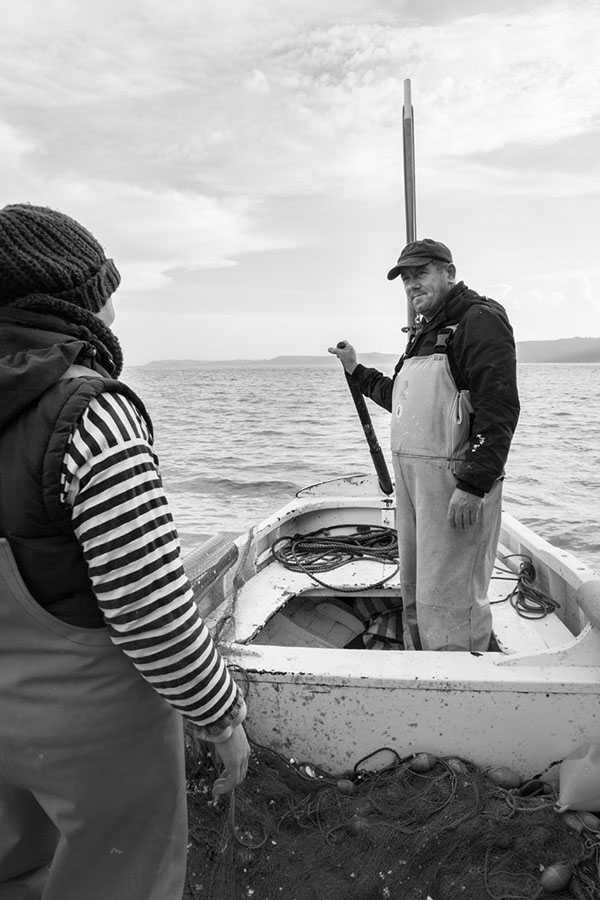 |
| Joy goes out to sea with Stephen whenever she can. |
Herring was plentiful until stocks collapsed in the 1970s. Smoking herring into kippers or salting it down in barrels, either for bait or consumption, had always been the most common way the herring was processed. That way it could be kept for longer and transported further inland. As herring was a main food source it became a staple during the war. The ‘herring ban’ in 1976 caused the closure of the Celtic and the North Sea fisheries and it lasted until 1983.
Stephen Perham and his brother Tommy were growing up during the herring ban and his father taught them the ropes of the trade by drawing diagrams in the salt of the windows of his house. Unfortunately their father died a year before the ban was lifted, but Stephen has been fishing for herring ever since.
The extraordinary thing about Stephen’s method of fishing is that it hasn’t changed one bit from how his ancestors did it. The boat is still the same type of small 16 ft wooden ’Picarooner’ his forebears used, nicely painted white every year and finished off with a pretty red rim. The nets are also still the same design, although they are now made of nylon rather than cotton. The only thing that has really changed is the demand for this beautiful silver fish. The big markets like Brixham and Plymouth just aren’t interested in herring any more.
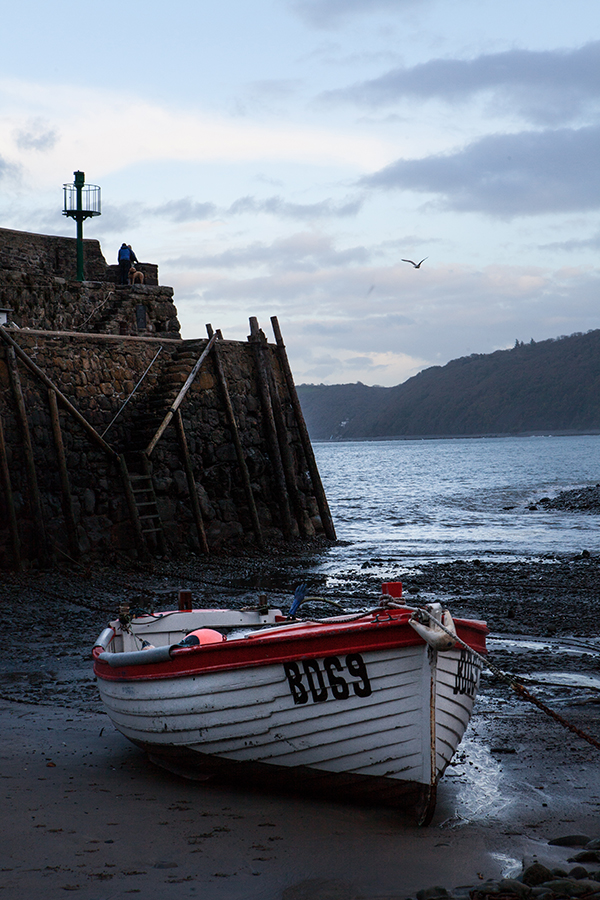 |
| A lonely ‘Picarooner’, a wooden herring boat unique to Clovelly |
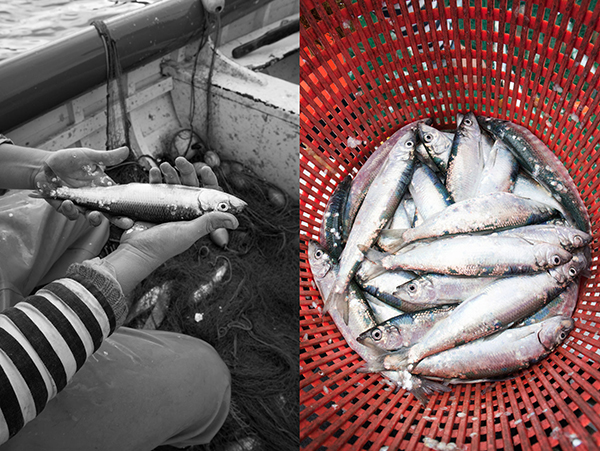 |
| It’s not difficult to see why these shiny fish are nicknamed ‘The Silver Darling’ |
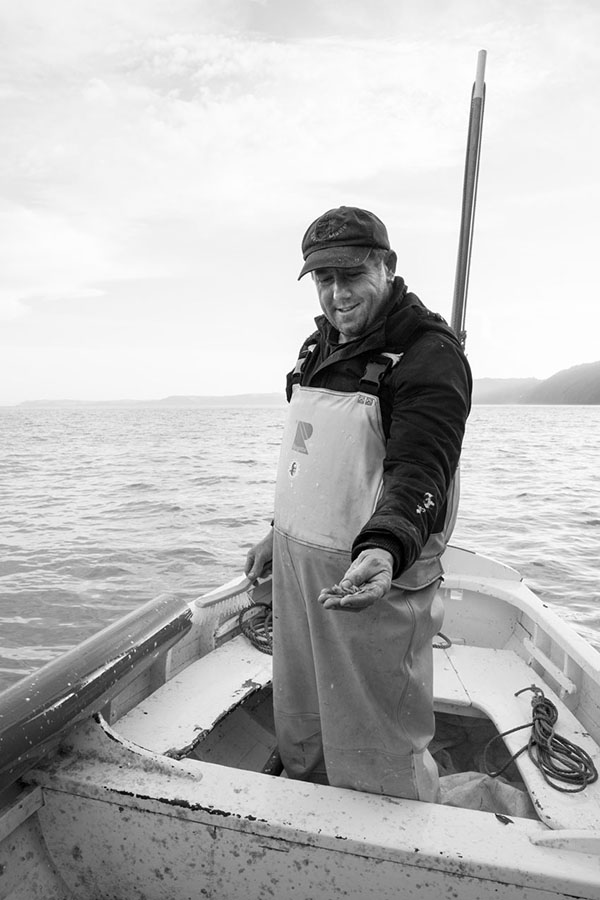 |
| Stephen shows me that the herring scales are everywhere. The boat looks like it is embellished. |
Luckily a food festival, like the Herring Festival in Clovelly, puts a healthy, oily fish like herring back in the spotlight and onto the menu. Not only does the food festival offer a number of stalls selling herring delights traditional and more exotic, there is fresh herring to take home, and there are also several stalls selling other local produce. I was on hand this year to help Stephen and Joy sell their lobster rolls, which we lovingly prepared that morning. Perham herring, which is how Stephen and Tommy call their beloved fish, was celebrated and enjoyed by many for this one whole day. But it should be on our plates more often.Rick Stein and Marco Pierre White have both come down to Clovelly in recent years to fight the corner of the herring. And it deserves saving. Clearly herring is a versatile fish; it is gorgeous fresh, but just as good smoked into kippers, simply baked in plenty of butter or cured into rollmops. A fish abundant and healthy, we should eat it more to support small scale fishermen who catch these little fish in a sustainable way and support carefully managed fishing. But, foremost, we should eat this fish because it is good for us.
If there is one thing I’ve learnt on my few days with Stephen and Joy, it is the importance of heritage. Traditional sustainable herring fishing is under threat to be lost. Fishermen have difficulties to sell their catch so have to try and find other ways to sustain themselves and their families, or move away from their villages and learn a different trade. Their quaint fishermen’s cottages are turned into holiday homes and their boats into flower beds. But Stephen is sure he isn’t the only one who’s at the end of a line of fishermen, there are other fishermen in other coastal villages who are also trying to hang on to a small scale sustainable method of fishing. His dream is to take to sea with the small wooden boat, he lovingly named ‘Little Lilly’ and visit those other fishermen, and write down their stories like I am writing down his today. For Stephen it is important that these old traditional methods, and the names of those who keep it alive, are noted down somewhere, so that they aren’t forgotten and lost. So that their heritage doesn’t rot away, like the old boats do on the beaches all round the British coast.
I hope that Stephen can sell enough of his catch to go on his trip. Because it is an important work to write, and one I would love to read.
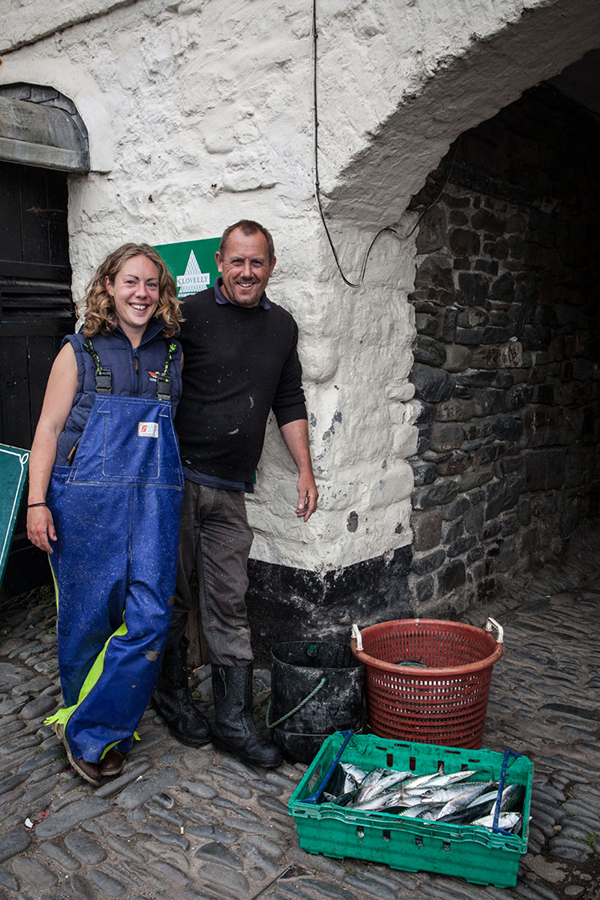 |
| Joy and Stephen when I first met them two years ago in the summer, with their catch of mackerel |
When I was visiting them my friend Sassy and I also shot a little video when we went fishing for herring with them. I hope you’ll like it!
I’ve uploaded it to my new Youtube Channel, don’t forget to subscribe 
The post The last of the herring men appeared first on Miss Foodwise.
]]>